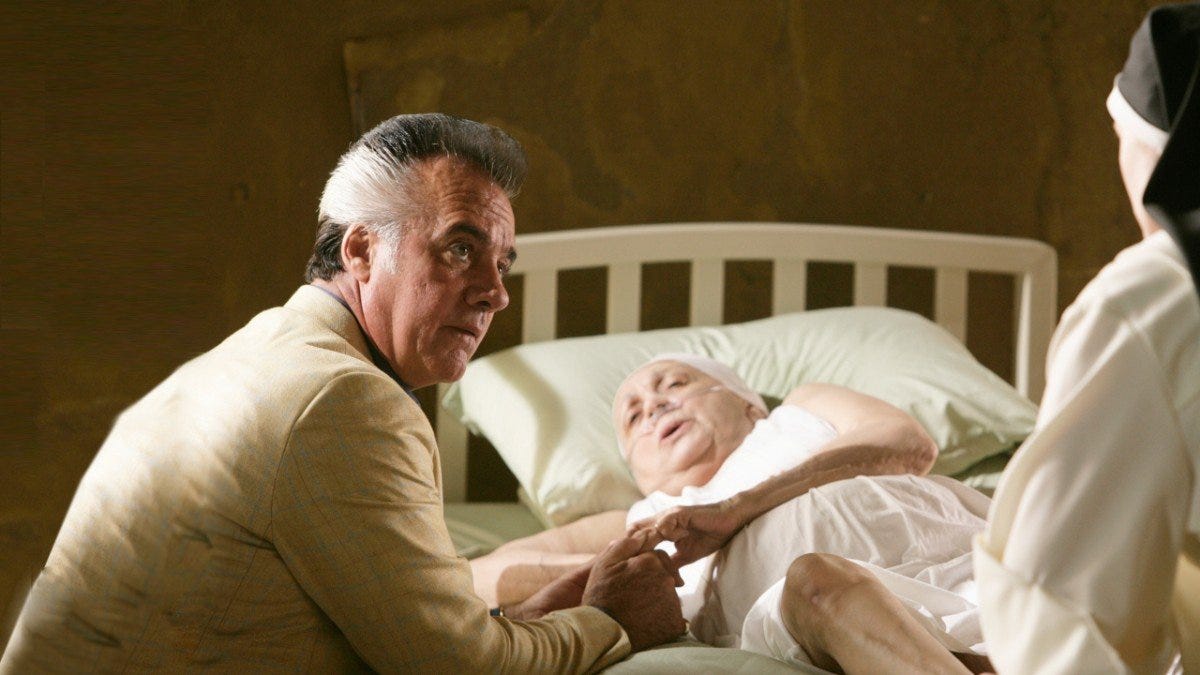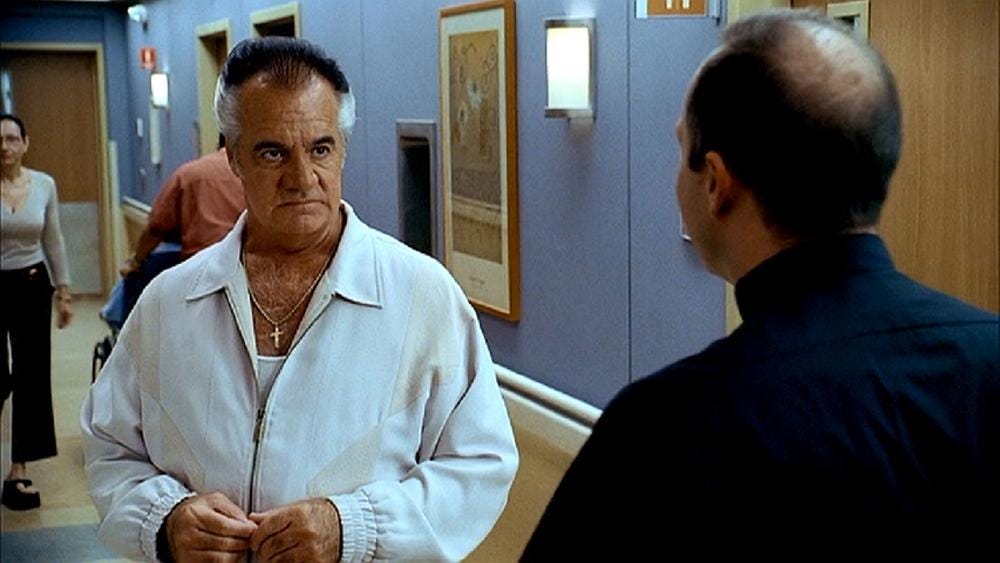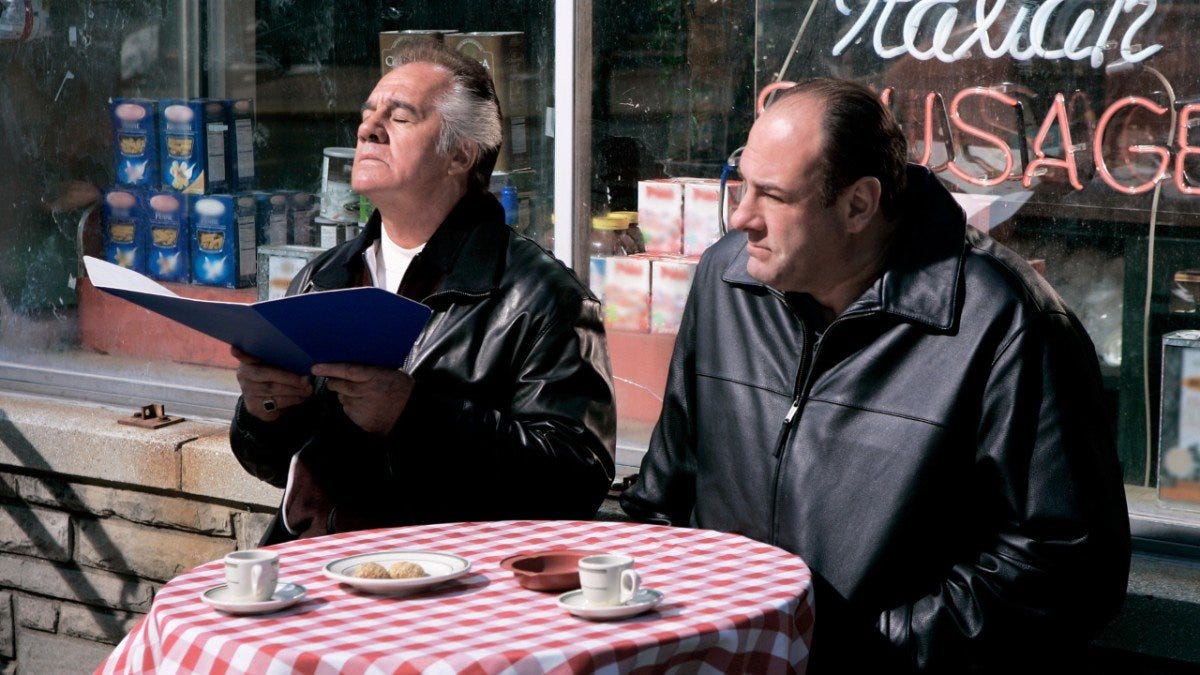On genital preference, part 1
have a little perspective, Paulie
In the 69th episode of The Sopranos, Peter Paul “Paulie Walnuts” Gaultieri discovers that he has been betrayed by the women he loves most.
On her deathbed, his aunt Dottie reveals that she gave birth to him, and that the woman who raised him, Nucci, is technically his aunt. The revelation throws him into a tailspin. He tells Nucci he never wants to see her again and refuses to attend Dottie’s funeral. After being moved to tears by a woman pleading with Tony Soprano to spare her son from his goons, he finds the son, beats him with an iron bar, and demands a secret cut from his dealings with the family (thoughtfully, this money will go toward Nucci’s retirement home expenses). When it is subsequently revealed that his colleague, Vito Spatafore, is a homosexual, Paulie wants to know: How many more lies can he take?
With their acting classes and their IBS and their fainting spells, Sopranos characters are relatable until they aren’t. Paulie’s rage is understandable, perhaps especially in its disproportion. Were we in his shoes, we may also be unfair, even cruel, to the ones who confessed to such a massive, if well-meant, lie. But most of us would not break a dude’s kneecaps, I think. Perhaps even more than Paulie’s at-this-point-well-documented violence—as mobster, assassin, thief, domestic abuser, etc.—it’s the way that that violence manifests here that reminds us that he, like his colleagues, is a bad man. I wonder if his (temporary) rejection of his erstwhile mother is any more cruel than his assault on the stranger with the iron bar. His victim would have an opinion, to be sure, but his perspective isn’t the only one at play here. Paulie feels nothing for the man he brutalized, and everything for the woman who brutalized him.
As children, many of us (though not I) fantasize about having been adopted. Few of us cherished a fantasy of finding out that we were adopted once we’re old enough to have silver wingtips. It’s devastating to be lied to by someone we trusted implicitly, but even worse than having one’s trust broken is to find mistrust in the ashes of a shattered paradigm. It’s one thing to willingly advance trust, as in a business transaction—Paulie’s forte—and another to have it broken in a way we never thought possible. One is interpersonal, and the other, dogma. This is bigger than a lie exposed. It’s a crisis of faith.
I chose Paulie’s tragedy for my lede because I think there’s an interesting resonance between the 20th century’s unwed mother and the 21st century’s stealth transsexual. What is the relationship between the sexualized secrecies of premarital female sex and trans bodies, inflected though they may be by cultural and temporal shift?
In 2020, it’s difficult to imagine a world in which out-of-wedlock pregnancy is so stigmatized that families like Paulie’s—or, more famously, Jack Nicholson’s—would conduct decades-long charades to conceal them. These lies were not told out of malice, but with the good of the mother and the child and, really, the whole family, in mind. It’s hard to see that paternalism as a good alternative to the truth, but in some ways paternalism has changed as much as our opinions about unwed mothers. I’m thinking about Kurosawa’s Ikiru (1952), in which a dying man is lied to by his doctors about his mortal disease in order to spare his feelings, or Sontag’s Illness As Metaphor (1978), which documents the once-normal practice of that kind of deception in the United States. Depending on who and where you were, there was a time in the not-so-recent past when your doctor and your family would straight-up just not tell you that you had six months left to live—a misguided paternalism that, to my Millennial analysis, breaks down into a combo of (often gendered) infantilization, conflict-avoidance, and ableism.
Tony Sirico, the actor who plays Paulie (and whose life is wilder than that of the man he portrays, if this interview is any indication) was born in 1942. At the time, premarital pregnancy was a normal secret to keep, which doesn’t make Dottie’s revelation any less devastating for Paulie.
But so what, you might think. Have a little perspective, Paulie.
Because motherhood isn’t about who birthed you—it’s about who raised and nurtured and loved you, though I admit that plenty of people are parented without nurturance and love. The practicalities of mothering should temper Paulie’s rage, if not eliminate it. Perhaps that rage, then, is more about the circumstances than the details. Sure, it’s about the fact that Paulie’s mother turns out not to have been the woman who gave birth to him. But it’s also about the fact that his implicit beliefs about motherhood and biology have been fundamentally shaken. Like I said, crisis of faith.
With this DAVID series, I’ll be using that unwed mother/transsexual resonance I was talking about to dig deeper into the concept of genital preference, with which most people are acquainted but which only trans and intersex people, for the most part, actually understand. If you have ever wondered whether it’s okay to prefer one kind of genital configuration over others, sexually speaking, I hope this series will answer some questions for you.
Stay tuned for more on informed consent, stealth aesthetics, penis prostheses, and lots of shocking tabloid headlines.
Read Part 2
David tweets at @k8bushofficial.





Is the missing cinematic reference here last year's The Farewell? Also about the widespread practice of not telling people they are dying...